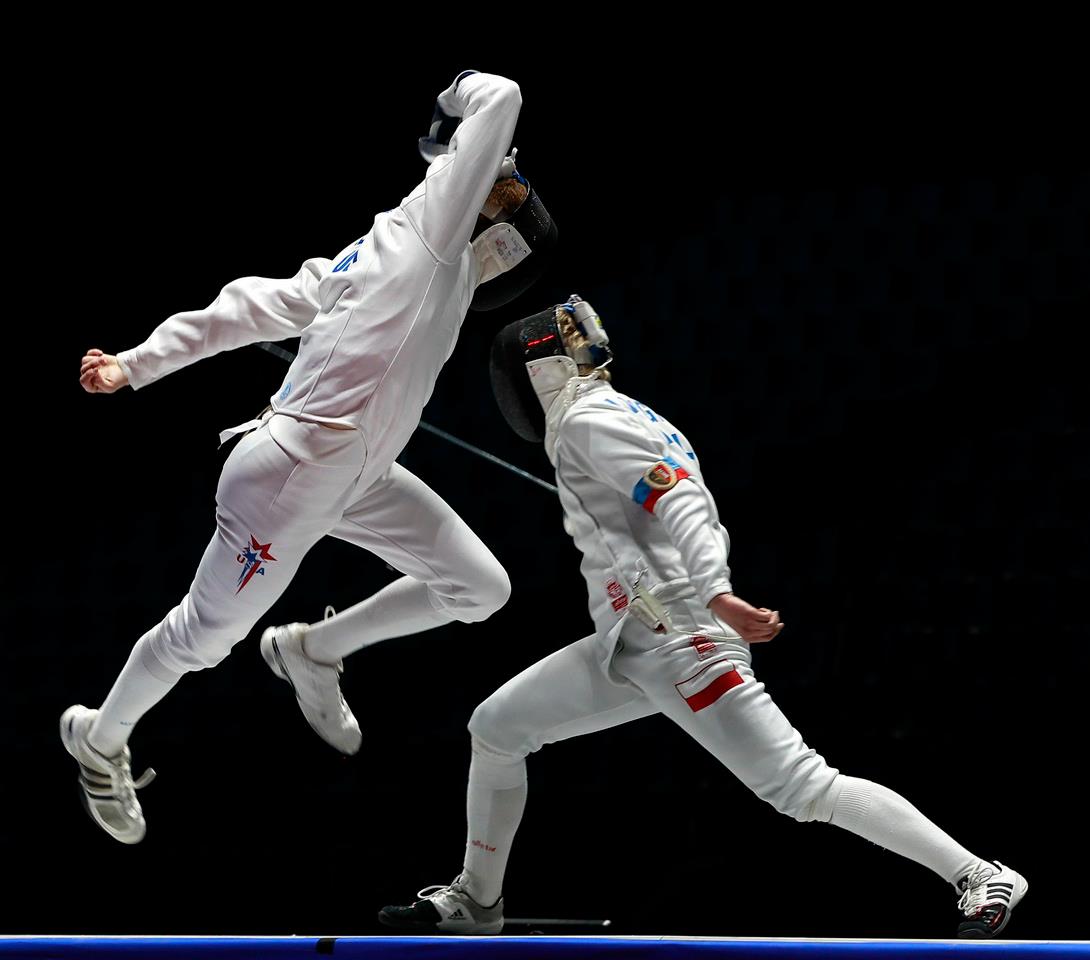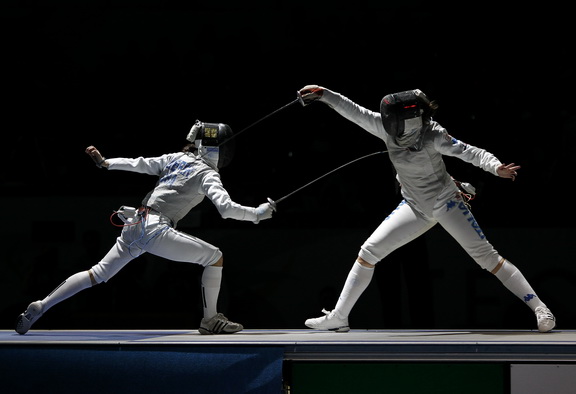Fencing is an extremely complex sport that takes years of repetitive, muscle-memory building exercises to create a natural flow-like state. Learning a new skill usually requires dedication despite a fair amount of failure, especially when applying and mastering that skill in competitive bouting. This idea of a slowly-but-surely improvement over long periods of time is evident to most fencers, yet it is often forgotten when planning a training routine. Actually, the concept of a long-term training routine is alien to many fencers.
There are some fencers who approach fencing in a leisurely fashion. They go to fencing practice a couple nights a week, and then compete about every other weekend. If there is a tournament approaching, usually they will cram in as much fencing and lessons as they can. This method typically does not produce very good results in the long run. Then there are other types of fencers who meticulously plan for their success. They see improvement in their skills and their results a bit sooner. They aren’t sidetracked by failure. They aren’t lucky when they win because their results didn’t happen by accident- they make it happen.
Just like setting up a second-intention action, fencers must think ahead of time about their training.
Doing one extra lesson before a tournament is hardly enough practice to prepare you for a significant result boost. Cramming before a tournament is indicative to low “fencing-confidence”. That is, those fencers who do not believe in or trust their fencing abilities may train a lot immediately before a tournament. They may do this because they need to get in as much fencing as they can in order to do well. They probably don’t realize that their result at the tournament have more to do with how their mind, rather than their body.
While being diligent in one’s training is ok, but not immediately before a tournament. Rest and energy conservation is better.
Light bouting, eating healthy meals, and getting enough sleep will provide you with the energy that you need to sustain you throughout the tournament. Long term planning of the fencing season should start out with a heavy emphasis on physical conditioning, followed by footwork and bladework drills, bouting simulation, and then resting before a tournament.
Lastly, remember the rules of Control, Plan, Trust (CPT).
- Control what you can (i.e. the foods you eat, how you react to a touch, etc…),
- Plan your training accordingly, and
- Trust that you have the ability to make it happen!




